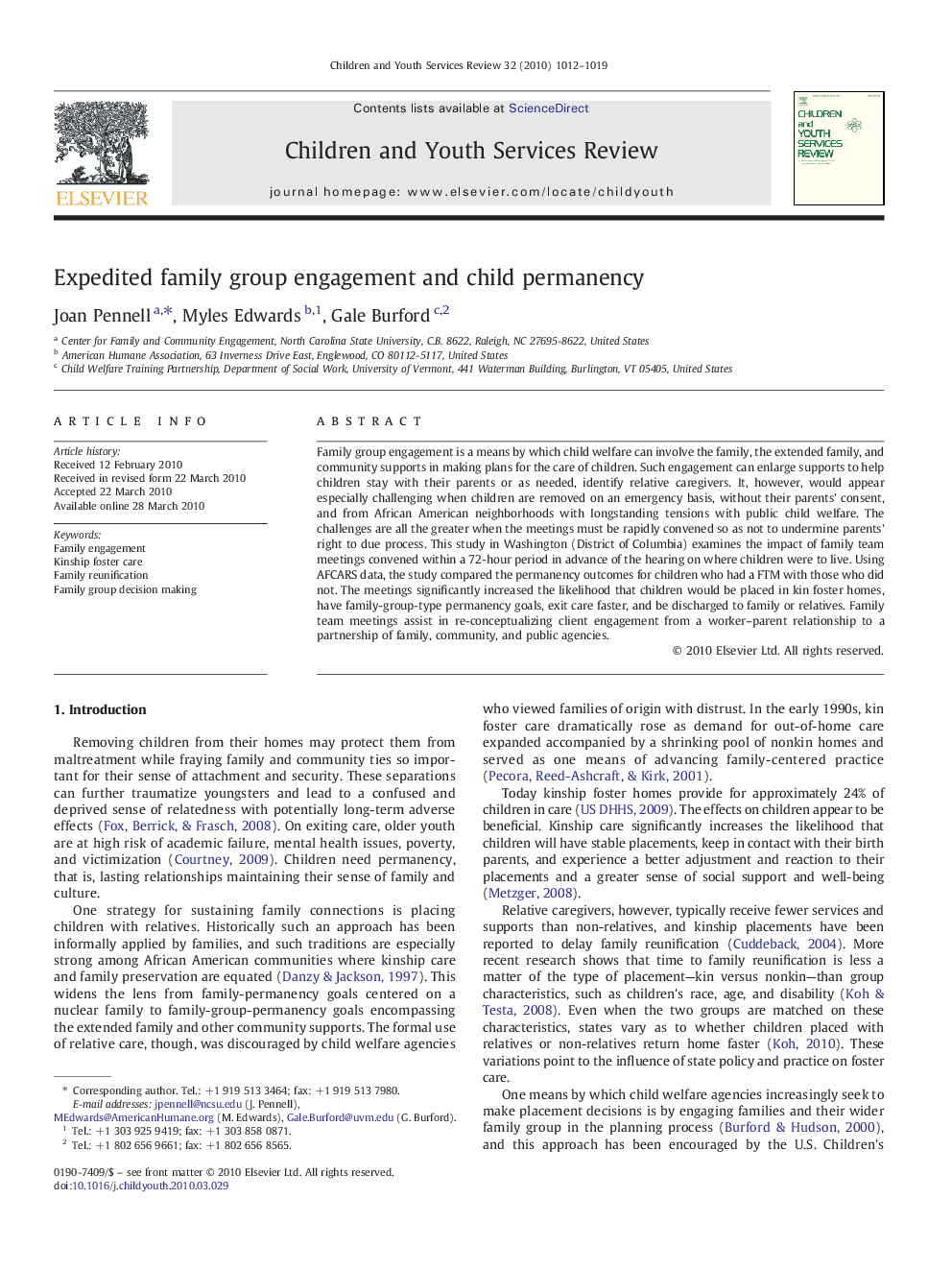| کد مقاله | کد نشریه | سال انتشار | مقاله انگلیسی | نسخه تمام متن |
|---|---|---|---|---|
| 347501 | 617896 | 2010 | 8 صفحه PDF | دانلود رایگان |

Family group engagement is a means by which child welfare can involve the family, the extended family, and community supports in making plans for the care of children. Such engagement can enlarge supports to help children stay with their parents or as needed, identify relative caregivers. It, however, would appear especially challenging when children are removed on an emergency basis, without their parents' consent, and from African American neighborhoods with longstanding tensions with public child welfare. The challenges are all the greater when the meetings must be rapidly convened so as not to undermine parents' right to due process. This study in Washington (District of Columbia) examines the impact of family team meetings convened within a 72-hour period in advance of the hearing on where children were to live. Using AFCARS data, the study compared the permanency outcomes for children who had a FTM with those who did not. The meetings significantly increased the likelihood that children would be placed in kin foster homes, have family-group-type permanency goals, exit care faster, and be discharged to family or relatives. Family team meetings assist in re-conceptualizing client engagement from a worker–parent relationship to a partnership of family, community, and public agencies.
Journal: Children and Youth Services Review - Volume 32, Issue 7, July 2010, Pages 1012–1019